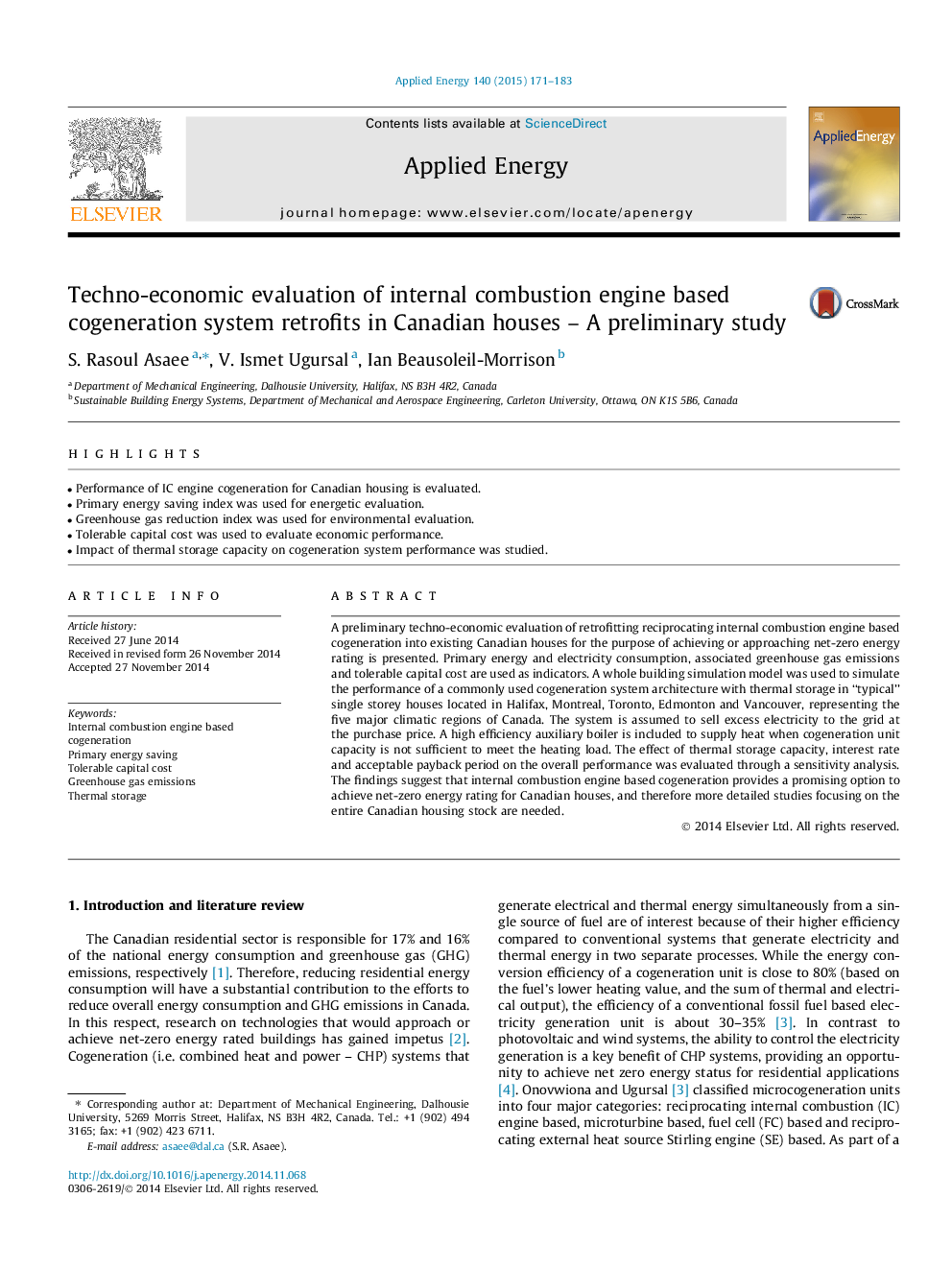| Article ID | Journal | Published Year | Pages | File Type |
|---|---|---|---|---|
| 6687922 | Applied Energy | 2015 | 13 Pages |
Abstract
A preliminary techno-economic evaluation of retrofitting reciprocating internal combustion engine based cogeneration into existing Canadian houses for the purpose of achieving or approaching net-zero energy rating is presented. Primary energy and electricity consumption, associated greenhouse gas emissions and tolerable capital cost are used as indicators. A whole building simulation model was used to simulate the performance of a commonly used cogeneration system architecture with thermal storage in “typical” single storey houses located in Halifax, Montreal, Toronto, Edmonton and Vancouver, representing the five major climatic regions of Canada. The system is assumed to sell excess electricity to the grid at the purchase price. A high efficiency auxiliary boiler is included to supply heat when cogeneration unit capacity is not sufficient to meet the heating load. The effect of thermal storage capacity, interest rate and acceptable payback period on the overall performance was evaluated through a sensitivity analysis. The findings suggest that internal combustion engine based cogeneration provides a promising option to achieve net-zero energy rating for Canadian houses, and therefore more detailed studies focusing on the entire Canadian housing stock are needed.
Related Topics
Physical Sciences and Engineering
Energy
Energy Engineering and Power Technology
Authors
S. Rasoul Asaee, V. Ismet Ugursal, Ian Beausoleil-Morrison,
